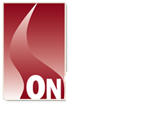California Black Women's Health Project
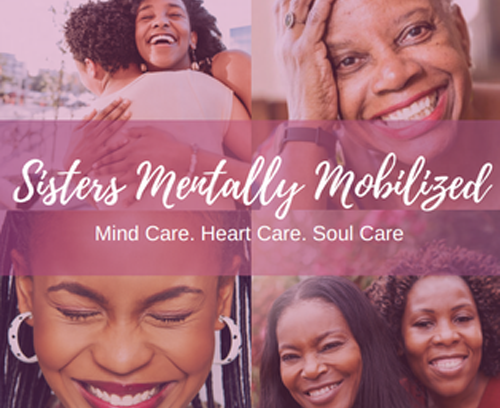
California Black Women’s Health Project (CABWHP) is the only 501(c)(3) non-profit organization solely dedicated to improving the health of California’s Black women and girls through education, policy, outreach and advocacy. They focus on the 1.5 million Black women and girls throughout California, specifically targeting the grassroots community located in the five counties with the highest population of Black women and girls. They are committed to advocating for policies and practices that promote and improve physical, spiritual, mental and emotional well-being. They believe a healthier future is possible when women are empowered to make choices in an environment where equal access and health justice are community priorities.
CDEP: Sisters Mentally Mobilized℠ (SMM℠) highlights their signature program, the Advocate Training Program (ATP), leadership development and skills building course designed to train women and girls to become effective health policy activists and advocates. The ATP under the CRDP is unique in that it incorporates mental health and wellness via a “sister circle” model of engagement that specifically addresses the needs of Black women and girls.
Catholic Charities
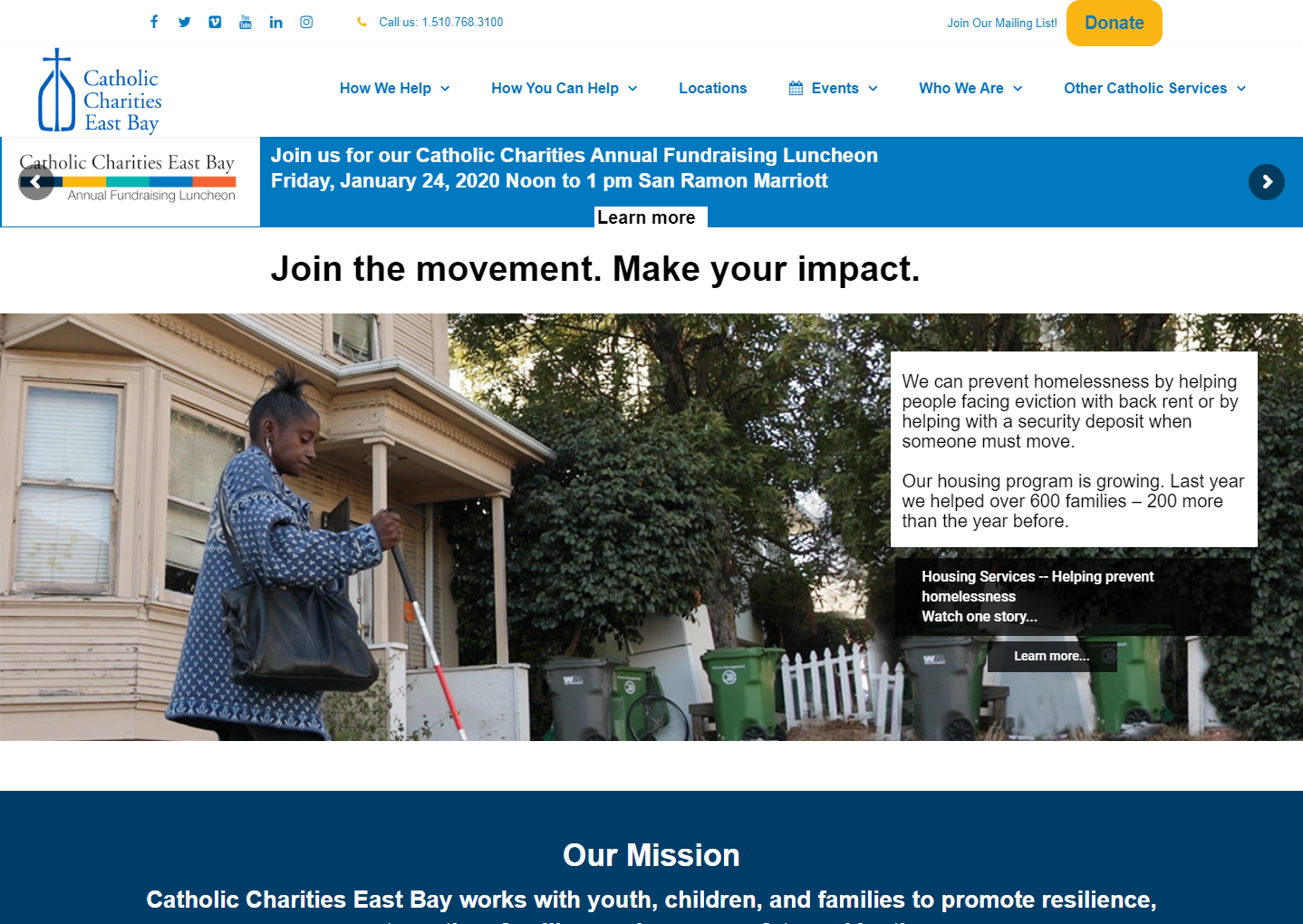
Catholic Charities of the East Bay‘s services are rooted in compassion and human dignity for all. We work with youth, children and families to promote self-sufficiency, strengthen families and pursue safety and justice. We serve and work in partnership with all and celebrate the diversity of our community, including those of any background, race, ethnicity, gender identity, sexual orientation, and religious or spiritual affiliation or belief.
CDEP: The Experience Hope for Schools program provides trauma screening and trauma-informed clinical and nonclinical services for violence-impacted African American youth within a restorative practices framework, paired with training and technical assistance for school staff, students, and parents. Restorative practices offer students respect and a focus on the importance of context and cultural factors in understanding youth behaviors; it provides youth with healing approaches to trauma-driven behaviors, instead of traditional punishment, which perpetuates trauma.
Healthy Heritage Movement, Inc
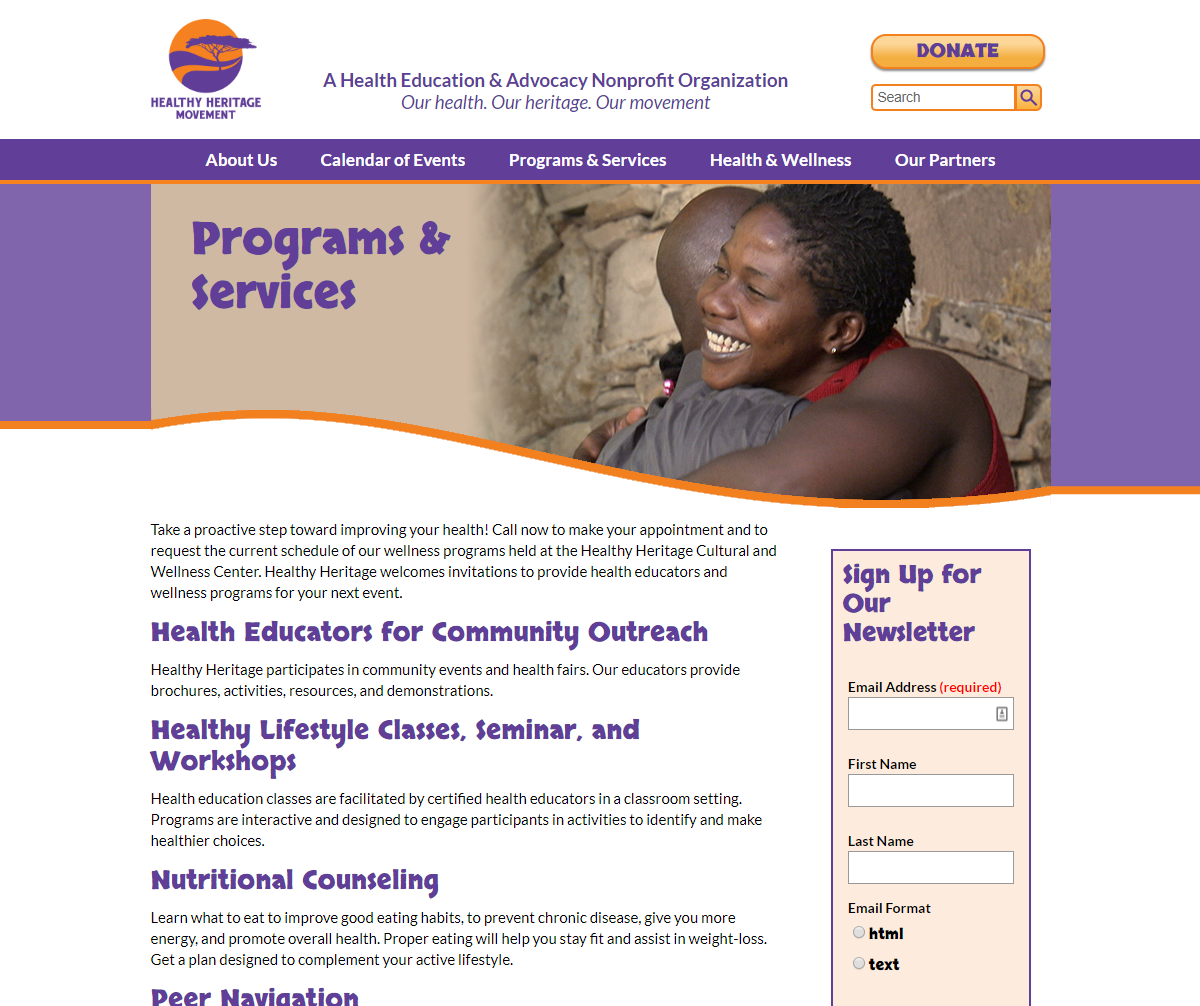
Healthy Heritage Movement (HHM) invests and facilitates culturally competent resources, advocacy training, and programs promoting prevention, early intervention, and education to improve the health and offset the economic burden of African Americans (AAs). They provide knowledge and tools to end contributory behaviors of high-risk, life-threatening health conditions plaguing African-Americans. HHM celebrates the diverse culture and richness of African-Americans by delivering resources to empower the community to live well and thrive.
CDEP: Broken Crayons…Still Color Project will partner with Black churches in order to provide education, information dissemination, outreach, and advocacy to reduce mental health disparities in the African American communities of Riverside and San Bernardino counties. The project goals are to increase knowledge of core mental health issues (depression, anxiety, PTSD, and substance abuse), reduce the stigma associated with mental health illness and increase awareness of mental health services and resources.
Safe Passages

Safe Passages disrupts the cycle of poverty by engaging youth and families to build and drive a continuum of services that support success and community development. Safe Passages envisions a community where all young people have the opportunity to realize their full potential. Our work is based on the premises that access to educational opportunity, health services, and family support should not be dictated by race, gender, or socio-economic status; and that healthy and supported young people are better prepared to learn and succeed.
CDEP: The Law and Social Justice Life Coaching Project (LSJ Life Coaching Project) is an existing Community Defined Evidence Practice that serves African American adjudicated youth ages 16 to 19 who reside in the most crime impacted and economically disenfranchised areas of the City of Oakland in Alameda County. Life Coaching is a trauma-informed practice to promote life skills, relationship building and coping strategies that foster resiliency, connections to caring adults, and self-actualization. The model also includes case management, life skills course with “Know Your Rights” education and a parent/family engagement and training program.
The Village Project
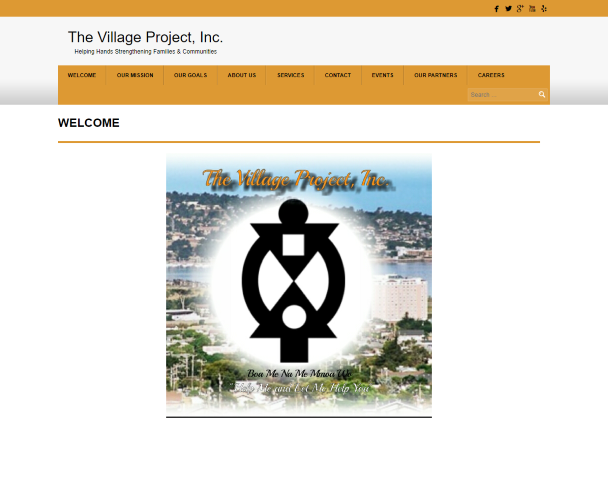
The Village Project came to fruition to meet the needs of the under-served African American Community in Seaside, CA. Their logo is based on the West African Symbol of Cooperation and Interdependence. The Symbol was chosen because it represents the way in which communities stay healthy and strong. Their Ubuntu reflects the love for African American communities.
CDEP: The Emanyatta Project is designed to strengthen the cultural and ethnic identity of Black children which would enable them to learn their cultural and ethnic identity to assure their success in all walks of life and to have a strong presence in the world. Emanyatta consists of a warrior’s camp of learners. The warrior’s camp will prepare them to become educated and self-determined in life so that their community is economically sustained and able to thrive.
“Boa Me Na Me Mmoa Wo” Help Me and Let Me Help You
West Fresno Family Resource Center

West Fresno Family Resource Center’s mission is to “empower and support the West Fresno Community to achieve optimal health and well-being” and accomplishes this by bringing together a safety net of quality services through “Five Pathways to Prevention:”
- Ensuring Children are Supported and Nurtured
- Establishing Strong and Connected Families
- Providing Reliable Family Service
- Assisting with Substance Abuse and Mental Health
- Crafting Creative and Connected Communities
CDEP: The Sweet Potato Project is a food-based collaborative project focused on youth that provides support services and training in mental health, healthy choices, life skills, urban agriculture, and business skills.
Whole Systems Learning
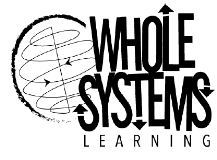
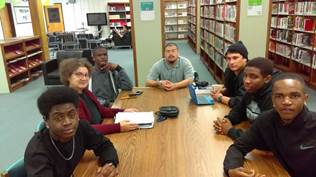
Whole Systems Learning (WSL) has been using a resiliency model in working with African American youth since 1996, in Watts, Compton, Inglewood, and Oakland, in juvenile detention facilities, and in adult prisons. Hundreds of foster and adjudicated youth have participated in the program; former foster youth have participated as peer mentors, coaches, and employees. Since 2010, the primary mission of WSL has been to prevent homelessness for foster and adjudicated youth through college preparation.
For the last 10 years, WSL has applied its brainbased methods in school settings with AA foster, at-risk, and adjudicated youth. As compared with a 15% increase in basic reading and math skills, WSL results were 300% in the same time period measured by pre/post testing measurements. Informal evaluations demonstrated a reduction in drug use, and an increase in program participation from 10% to 90%. This model has been used to support hundreds of children increase reading and math levels by three to five grade level equivalencies in just 20 hours of services.
CDEP: TRIBE (Turning Resilience Into Brilliance for Eternity) is an extension and a culmination of years of developing somatic and brain-based learning interventions and developing culturally competent strategies for young people immersed in the gang culture. The TRIBE program is now the primary work of the organization, as it focuses on over-represented youth. Year 1 is an intensive resiliency and learning program where finding purpose occurs with concurrent college enrollment at the center. In subsequent years, participants will continue through college graduation, become mentors to the next cohorts, start businesses, families, and work with the TRIBE Association to bring about community change and empowerment.
TRIBE is family, TRIBE is community, TRIBE is home.

